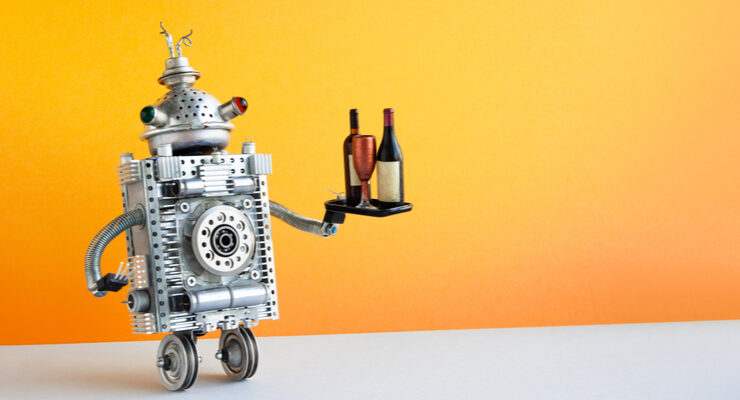The hospitality industry’s fierce rivalry has driven the requirement for individualized experiences – utilizing automation technology will assist in achieving the anticipated quality of customer experiences.
The hospitality business is reliant on a huge number of complex and repetitive procedures, depleting resources and time for more useful duties such as strategizing for improved guest experiences. According to a survey conducted by Sage, just roughly 16 percent of hospitality businesses use innovative technologies. The number will continue to rise, but the sector must see the benefits of adoption.
Robotics is already widely used, providing promising solutions to firms and individuals working in the hospitality management industry. The ability of robotics to provide self-service and an enhanced client experience has increased our reliance on them. Additionally, automation adoption has the ability to create enhancements in a cost-effective manner while maintaining the necessary speed and accuracy.
The Henn-na Hotel in Nagasaki, Japan, has gone even farther, becoming the first hotel in the world to be totally staffed by robots. Robots are distributed throughout the hotel, including at the front desk, storage, information, and check-in and check-out services, and are using advanced technology.
Every time, the hospitality industry faces the same pain points and digital issues. The sector deals with a lot of customer data, and they’re adopting automation to help them manage it faster and improve the customer experience—various teams working remotely on bookings and payments for the same property frequently silo data. There are several systems involved, none of which allow for effective cross-channel information sharing. Communication and collaboration are hampered, resulting in inefficiencies, storage space is used up, and overall efficiency being slowed. As a result, businesses must use automation technology to facilitate data sharing and security. This has a huge impact on revenue.
To make efficient decisions while using high-end technology like robotics and automation, you need to have the right knowledge and abilities. Many businesses have already begun to automate parts of their business procedures. However, the digital skills gap among employees is the most pressing challenge in making this more broadly applied. Once that obstacle has been overcome, deploying integrated solutions or a single end-to-end platform simplifies the practice, training, and optimization of the technology.
In today’s competitive company world, there is no room for squandering any opportunity for effective market outreach. Automation may be the most promising tool for the hospitality business, allowing them to intelligently reach out to clients by sending timely, customized offers in real-time. They will be able to increase guest engagement as a result of this. Using an automated back-office dashboard to streamline internal operations will also allow hospitality professionals to manage and organize information in one central area, resulting in improved guest interactions.
Other technology developments, such as IoT devices, autonomous agents, and virtual reality, have had a significant impact on the sector, altering the workforce and jobs. Automation technologies, such as AI, ML, and robots, are the single most disruptive instrument that will make a significant impact on the hospitality industry’s profits, especially now that the market is likely to become considerably tougher than it has ever been.
Like this post? Checkout our Featured Stories Section





No Comments